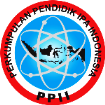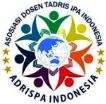Development of Anecopbl Model to Improve Critical Thinking and Collaboration Skills of Elementary School Students
Abstract
This study aims to develop anecopbl learning model to improve critical thinking and collaboration skills of elementary school students. This type of research is development research. The development model used in this study is the ADDIE model through 5 stages, namely, (1) analysis stage (2) design stage; (3) development stage (4) implementation stage,; (5) evaluation stage. The data obtained in the validation of model assessment instruments by experts are in the form of underlying theories, objectives, syntax, and social systems. The results of the conversion of validation assessments on the underlying theoretical aspects have an average value of 10 with very good categories. While the conversion results of the validation assessment on the objective aspect have an average of 8.5, with a very good category. The results of the conversion validation assessment on syntax and social systems by experts have an average value of 18.5 so that it has a very good category. The effectiveness of the anecopbl model was shown by an average test result of n-gain of 0.77 in the effective category. These results suggest that the use of models can improve students' critical thinking skills. Based on the effect size test between the control group and anecopbl showed a result of 2.90 showing that learning using the model that has been done is very effective and has a major effect in improving critical thinking skills. The results of the collaboration assessment showed that more than half of all respondents agreed that they had the same goals, shared duties and responsibilities, and that there was cooperation between groups. So that the anecopbl model is feasible, effective, and practical to be used to improve critical thinking and collaboration skills of elementary students.
Keywords: anecopbl, critical thinking, collaboration
Full Text:
PDFReferences
Anazifa, R.D., Djukri, D. (2017). Project- Based Learning and Problem-Based Learning: Are They Effective to Improve Student’s Thinking Skills? Indonesian Journal of Science Education, 6(2).
Argaw, A. S., Haile, B. B., Ayalew, B. T., & Kuma, S. G. (2017). The Effect of Problem-Based Learning (PBL) Instruction On Students’ Motivation And Problem-Solving Skills Of Physics. Eurasia Journal of Mathematics, Science and Technology Education, 13(3), 757–871. https://doi.org/https://doi.org/10.12973/eurasia.2017.00647a
Arifin, M.Z., Setiawan, A. (2020). Strategi Belajar dan Mengajar Guru pada Abad 21. Indonesian Journal of Instructional Technology, 1(2).
Arranz, J. M., & García-Serrano, C. (2020). Does Unemployment Benefit Duration Affect Inflows Into Unemployment? The Impact Of A Law Change For Older Workers. Journal of the Economics of Ageing, 17. https://doi.org/https://doi.org/10.1016/j.jeoa.2020.100278
Bakhri, S. . S. (2017). Peran Problem-Based Learning (PBL) dalam Upaya Peningkatan Higher Order Thinking Skills (HOTS). Seminar Matematika Dan Pendidikan Matematika UNY, 717–722.
Branch, R. M. (2009). Instructional Design-The ADDIE Approach. Springer.
Chusni, M.M., Saputro, S., Suranto., Rahardjo, S. B. (2020). Review of Critical Thinking Skill in Indonesia: Preparation of The 21st Century Learner. Journal of Critical Reviews, 7(9).
Croucher, S. M., Kelly, S., Rahmani, D., Burkey, M., Subanaliev, T., Galy-Badenas, F., Lando, A. L., Chibita, M., & Nyiransabimana, V., Turdubaeva, E., Eskiçorapçı, N., & Jackson, K. (2020). A Multi-National Validity Analysis Of The Self-Perceived Communication Competence Scale. Journal of International and Intercultural Communication, 13(1), 1–12. https://doi.org/https://doi.org/10.1080/17513057.2019.1569250
Eggen, P., & Kauchak, D. (2012). Strategies and Models for Teacher: Teaching Content And Thinking Skills (6th ed.). Boston: Pearson Education.
Erikson, M. G., & Erikson, M. (2019). Learning Outcomes and Critical Thinking–Good Intentions In Conflict. Studies in Higher Education, 44(12), 2293–2303. https://doi.org/https://doi.org/10.1080/03075079.2018.1486813
Fraenkel, J.F., Wallen, N.E., Hyun, H. H. (2012). How to Design And Evaluate Research In Education (8th ed.). McGraw Hill.
Günay, C., Doloc-Mihu, A., Gluick, T., and Moore, C. A. (2019). Project-Based Learning Improves Critical Thinking for Software Development Students. 105. https://doi.org/doi: 10.1145/3349266.3351362.
H. Hendriana, E. E. Rohaeti, and U. S. (2017). Hard Skills dan Soft Skills Matematika Siswa. Bandung: Refika Aditama.
Holmes Natasha G., Wieman Carl E., B. D. (2015). Teaching critical thinking. Proceedings of the National Academy of Sciences, 112. https://doi.org/10.1073/pnas.1505329112
Kassab, S. E., Hassan, N., El-araby, S., S., A. H., Alrebish, S. A., Al-amro, A. S., …, & Hamdy, H. (2017). Development and Validation of The Motivation for Tutoring Questionnaire in Problem-Based Learning Programs. Health Professions Education, 3(1), 50–58. https://doi.org/https://doi.org/10.1016/j.hpe
Khairiyah, A. J. & H. (2018). Problem Based Learning: Creative Thnking Skills. Problem Solving Skills, and Learning Outcome of Seventh Grade Students. Indonesian Journal of Biology Education, 4(2).
Kudari, J. M. (2016). Survey on the Factors Influencing the Student’s Academic Performanc. International Journal of Emerging Research in Management & Technology, 56, 30–36.
Kuloglu, A., Karabekmez, V. (2022). The Relationship Between 21st-Century Teacher Skills and Critical Thinking Skills Of Classroom Teacher. International Journal of Psychology and Educational Studies, 9(1), 91–101. https://doi.org/https://dx.doi.org/10.52380/ijpes.2022.9.1.551
Maulidya, F., Mudzakir, A., Sanjaya, Y. (2014). Case Study the Environmental Literacy of Fast Learner Middle School Students In Indonesia. 3(1).
Moust, J., Bouhuijs, P., & Schmidt, H. (2019). Introduction to problem-based Learning. Taylor & Francis.
Nuić, I. Glažar, S. A. (2020). The Effect of e-Learning Strategy at Primary School Level on Understanding Structure and States of Matter. EURASIA Journal of Mathematics, Science and Technology Education, 16(2).
Nurdin, N. N., & Uleng, B. P. (2023). The Implementation of Problem-Based Learning Activity Through Online School Field Practice. Jurnal Ilmiah Global Eucation, 4(1), 111–117. https://doi.org/https://doi.org/10.55681/jige.v4i1.533
Nurfajriah, N., Tabroni, I., Faujiah, N., Nurjannah, R., & Putri, T. (2022). Problem-Based Learning (PBL): Concrete Steps to Improve Students’ Communication Skills. International Journal of Integrative Sciences, 1(1), 7–20. https://doi.org/https://doi.org/10.55927/ijis.v1i1.2973
Nurhayati, Hernani, S. (2019). The Effectiveness of Using Integrated Science Practice Worksheet of Integrated Type to Enhance Environmental Literacy. Journal of Physics: Conference Series, 1280(3).
OECD. (2018). PISA 2018 Country Note: Indonesia.
Olson, J.M., Codde, J.R. deMaagd, K., Tarkleson, E. (2011). An Analysis of e-Learning Impacts & Best Practices in Developing Countries With Reference to Secondary School Education in Tanzania. The ICT4D Program.
Osborne, J. (2013). The 21st Century Challenge for Science Education:Assessing Scientific Reasoning. Thinking Skills and Creativity, 10, 265–279.
Palmer, J. A. (2013). Environmental Education in The 21st Century, Teori, Practice, Progress and Promise. Routledge.
Paul, R., & Elder, L. (2008). The miniature guide to critical thinking concepts and tools(5thed.). The Foundation for Critical Thinking.
Paul, R., Binker, A. J., Martin, D., Vetrano, C., & Kreklau, H. (1989). Critical thinking handbook: 6th-9th grades. A guide for remodelling lesson plans in language arts, social studies, & science. Sonoma State University.
Prayogi, S., Yuanita, L. & W. (2018). Critical Inquiry Based Learning: A model of Learning to Promote Critical Thinking Among Prospective Teachers of Physic. Journal of Turkish Science Education, 15(1), 43–56. https://doi.org/https://doi.org/10.12973/
Rahman, M. M. (2019). 21st Century Skill “Problem Solving”: Defining the Concept. Asian Journal of Interdisciplinary Research, 2(1), 71–81.
Rahmayanti, E. (2017). Penerapan Problem Based Learning dalam Meningkatkan Kemampuan Berpikir Kritis Peserta Didik pada Pembelajaran Pendidikan Pancasila dan Kewarganegaraan Kelas XI SMA. Konferensi Nasional Kewarganegaraan III.
Razak, A.A., Ramdan, M.R., Mahjom, N., Zabit, M. N. (2022). Improving critical thinking skills in teaching through problem based learning for students: a scoping review. International Journal of Learning Teaching and Educational Research, 21(2), 342–362.
Rijal, M., Mastuti, A.G., Safitri, D., Bachtiar, S., and Samputri, S. (2021). Differences in learners’ critical thinking by ability level in conventional, NHT, PBL, and integrated NHT-PBL classrooms. International Journal of Evaluation and Research in Education (IJERE)., 10(4), 1133–1139. https://doi.org/http://doi.org/10.11591/ijere.v10i4.21408
Rosyidi, A. Z. (2018). The Effectiveness of Problem-Based Learning (PBL) Method in Teaching Reading. International Journal of Education and Curriculum Application, 17–22. https://doi.org/https://doi.org/10.31764/ijeca.v0i0.1972
Sani, R. A. (2014). Pembelajaran Saintifik untuk Implementasi Kurikulum 2013. Bumi AKsara.
Saputro S.D, Tukiran, & S. Z. A. I. (2022). Effectiveness of Clarity Learning Model to Improve Students’ Advanced Clarification Critical Thinking Ability in Physics Courses. Pegem Journal of Education and Instruction, 12(3), 49–58.
Simanjuntak, M. P., Hutahaean, J., Marpaung, N., & Ramadhani, D. (2021). Effectiveness of Problem-Based Learning Combined with Computer Simulation on Students’Problem-Solving and Creative Thinking Skills. International Journal of Instruction, 14(3), 519–534. https://doi.org/https://doi.org/10.29333/iji.2021.14330a
Siregar, L.S., Wahyu, W., Sopandi, W. (2020). Polymer learning design using Read, Answer, Discuss, Explain and Create (RADEC) model based on Google Classroom to develop student’s mastery of concepts. JPhCS, 1469(1), p.012078.
Suarsana, I M., Lestari, I. A. P. D., & Mertasari, N. M. S. (2019). The Effect of Online Problem Posing on Students’ Problem-Solving Ability in Mathematics. International Journal of Instruction, 12(1), 809–820.
Sukardjo, Sari, L. P. (2009). Metodologi Penelitian Pendidikan Kimia. FMIPA UNY.
Sutiani, A., Situmorang, M., and Silalahi, A. (2021). Implementation of an Inquiry Learning Model with Science Literacy to Improve Student Critical Thinking Skills. International Journal of Instruction, 14(2), 117–138. https://doi.org/10.29333/iji.2021.1428a
Treepob, H., Chulida Hemtasin, C., Thongsuk, T. (2023). Development of Scientific Problem-Solving Skills in Grade 9 Students by Applying Problem-Based Learning. International Education Studies, 16(4). https://doi.org/doi:10.5539/ies.v16n4p29
Trilling, B & Fadel, C. (2009). 21st-century skills: learning for life in our times. ossey-Bass A Wiley Imprint.
Ulger, K. (2018). The Effect Of Problem-Based Learning on The Creative Thinking and Critical Thinking Disposition of Students In Visual Arts Education. Interdisciplinary Journal of Problem-Based Learning, 12(1), 1–21.
Wale, B. D., & Bishaw, K. S. (2020). Effects of Using Inquiry-Based Learning on EFL Students’ Critical Thinking Skills. Asian-Pacific Journal of Second and Foreign Language Education, 5(1), 1–14. https://doi.org/https://doi.org/10.1186/s40862-020-00090-2
Warsah, I., Morganna, R., Uyun, M., Hamengkubuwono, H., and Afandi, M. (2021). The Impact of Collaborative Learning on Learners’ Critical Thinking Skills. International Journal of Instruction, 14(2), 443–460. https://doi.org/10.29333/iji.2021.14225a.
Widoyoko, E. P. (2016). Penilaian Hasil Pembelajaran di Sekolah. Pustaka Pelajar.
DOI: http://dx.doi.org/10.24014/jnsi.v7i2.26602
Refbacks
- There are currently no refbacks.

Journal of Natural Science and Integration
E-ISSN: 2620-5092 P-ISSN: 2620-4967
Published By:
Department of Science Education, Faculty of Education and Teacher Training,
State Islamic University of Sultan Syarif Kasim Riau, Indonesia
Mailing Address:
Jl. H.R Soebrantas Km. 15 No. 155
Kelurahan Simpang Baru
Kecamatan Tuah Madani, Pekanbaru, Riau, Indonesia
Email: jnsi.tadrisipa@uin-suska.ac.id
Indexed By:
Journal of Natural Science and Integration is licensed under a Creative Commons Attribution 4.0 International License.


_-_Copyy2.png)






.jpg)
.png)
.jpg)
.jpg)




